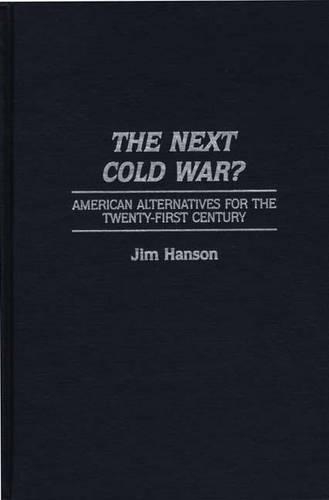
The Next Cold War: American Alternatives for the Twenty-First Century
(Hardback)
Publishing Details
The Next Cold War: American Alternatives for the Twenty-First Century
By (Author) James M. Hanson
Bloomsbury Publishing PLC
Praeger Publishers Inc
24th September 1996
United States
Classifications
Tertiary Education
Non Fiction
Political economy
International economics
327.73
Physical Properties
Hardback
208
Description
The Next Cold War sounds a warning: the United States may be contributing to another cold war through its competitive unilateral and regional economic policies. Whereas wars of the past usually resulted from political conflict, Hanson warns that a new cold war may result from economic conflict. This raises important questions for American policymakers. Will the United States be a world leader that promotes cooperation and unity, or will it seek to create competition and division Will the United States address the basic problems of population, environmental deterioration, and economic stagnation in concert with other nations, or will it pursue narrow geopolitical and geoeconomic power strategies This fascinating work explores both sides of these questions and poses alternatives that will promote world cooperation and unity.
Reviews
Hanson...argues that while the US can no longer act as it did in the Cold War, failure to act correctly in the future may bring on another cold war. The US should pursue morality instead of power and long-term international order instead of short-term national/regional advantage, thereby leading humanity to world government....General and academic readers, all levels.-Choice
"Hanson...argues that while the US can no longer act as it did in the Cold War, failure to act correctly in the future may bring on another cold war. The US should pursue morality instead of power and long-term international order instead of short-term national/regional advantage, thereby leading humanity to world government....General and academic readers, all levels."-Choice
Author Bio
JIM HANSON is the author of The Decline of the American Empire (Praeger, 1993) and has contributed to publications such as the Journal of Applied Sociology, Humanity and Society, and Contemporary Sociology. He holds a Ph.D. from Southern Illinois University.
